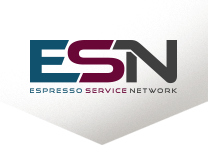Resources
Bridging the Gap: Elevating Espresso Service through Collaborative Care and Accountability
July 22nd 2024
Concerns over the quality of commercial espresso service has always plagueed the coffee industry. Without licensing requirements for service technicians, many enter the industry simply because they enjoy fixing things or believe they can meet repair demands at a more reasonable price than other technicians in their community. However, technical skills alone does not ensure quality espresso service; a mutual and transparent working relationship between service provider and equipment owner from installation throughout the operating life of the equipment is key.
Separation of Sales and Services Creates Accountability issues
The separation of sales and service in the commercial espresso industry often creates misunderstandings and challenges for equipment owners. When equipment is purchased through a retailer that subcontracts service aspects, such as installation, the service technician is accountable to the retailer rather than the equipment owner. If the equipment is under warranty, the retailer, not the service technician, is responsible for arranging necessary maintenance services. If the retailer chooses not to facilitate these services, the equipment typically continues to operate until a malfunction occurs. Once warranties expire, the retailer's accountability remains however they often step aside, leaving a local service company or another willing individual to assist the customer moving forward. This disconnect leaves equipment owners vulnerable to inexperienced technicians harboring minimal accountability.
In the U.S., service responsibility rarely transfers formally from retailer to provider

In the U.S., rarely does the service responsibility of commercial espresso equipment formerly transfer from retailer to service provider. As a result, equipment owners are often left to find quaified technical assistance when their equipment malfunctions. The message to equipment owners is baffling to coffee professionals but clear, equipment maintenance is not important, and any technician will do. In most cases, service providers only identify an equipment owner as a customer once the individual contacts them for service independently of the retailer.
The Espresso Service Network's (ESN) sales programs intentionally creates a collaborative working relationship between equipment owner and a local service company at the point of purchase. The service provider assumes the responsibility for the service and warranty portion of the customer's purchase and is fairly compensated for the accountability and risks they assume. ESN collaboratively works with service technicians on both technical and business strategies. Naturally, equipment purchased through the program automatically includes complimentary comprehensive predictive maintenance.
Complimentary maintenance highlights the importance of timely upkeep
Maintenance is included to reinforce the relationship between the equipment owner and the service technician, while also emphasizing the importance of timely maintenance practices. At the appropriate time, ESN facilitates a new service agreement bested suited for the equipment owner as well as the service provider. This agreement is crucial for maintaining the relationship between the two parties. If either party is reluctant or unable to renew their working relationship, ESN addresses any roadblocks. If an agreement cannot be reached, ESN searches for alternative service solutions.
Equipment owners should not need to seek service independently
Our primary goal is to ensure equipment owners do not have to seek service independently and that technicians are adequately prepared and genuinely supported in caring for equipment vital to the growth and success of U.S. coffee businesses. Ultimately, this program aims to inspire retailers to take a more active role in ensuring the best repair and maintenance practices for their customers.
Back to Articles


